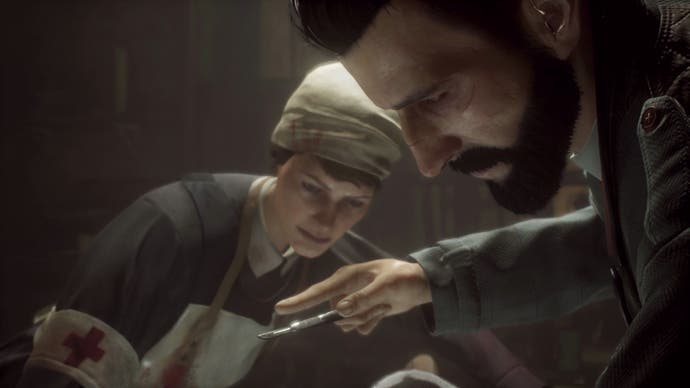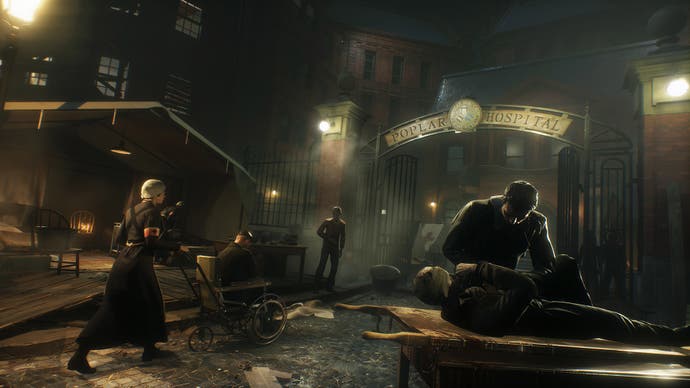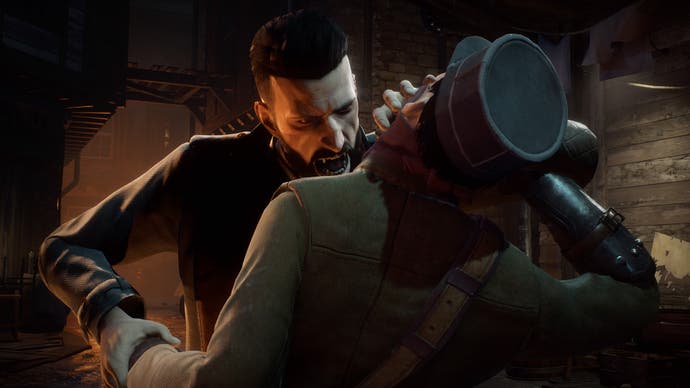Robert Purchese
Curated From www.eurogamer.net Check Them Out For More Content.
While the world waits, and waits, for Vampire: The Masquerade – Bloodlines 2, a sequel that only ever seems further away – can you believe it was once scheduled for 2020? – I’m reminded of a vampire role-playing game that nearly passed me by. One of similar size and similar tone: thoughtful, brooding, dark. A game about drinking blood to sustain yourself and fighting demons, yes, but also about deciding what kind of vampire you want to be, and what kinds of morals you, as an undead being, want to have. Are you a monster, or are you a person still?
Vampyr is the game I’m talking about, released in 2018 by Focus Home Entertainment and Life is Strange studio Dontnod, so there was some fanfare around it. But middling reviews sank it and the game floated downriver, past most people, and it would have passed completely had it not been fished out by the – then – new wave of subscription services. They resuscitated it and gave it another chance (see also: Focus Home’s A Plague Tale: Requiem) and I’m so glad they did.
There’s something about rediscovering a game in solitude, away from all of the noise of release, that makes for a more sympathetic appraisal, I think. The pressure is off; and the pressure that was on Vampyr when it originally came out, to fill the vampire RPG void left by Bloodlines in 2004 (the sequel hadn’t yet been announced) was great. Lots of people wanted the game to be lots of different things, and it fell short for lots of understandable reasons. But rediscovered a couple of years later, a surprisingly considered and accomplished vampire tale is there to be found.
What I like most about it is the central conceit: in the game you are, or were, a doctor in life, so you took a Hippocratic Oath to behave in a certain, ethically upstanding way, and to not, say, tuck in to your patients. But now you’re dead and hungry for blood, this oath, which morally shaped you, serves as an obstacle. Will you take the lives of people you once swore to heal and help? It’s a duality you struggle with all through the game: whether or not to give-in to your more monstrous side or cling to the person you used to be.
The game backs this up mechanically, which is something I love, because it’s easy enough to ignore philosophical ramifications in games but you cannot ignore mechanical ones. In Vampyr, if you want more power – and who doesn’t want more power in an RPG? – you have to drink people’s blood to get it, and ’embrace’ them, and there’s a whole system of fattening them up for the kill that revolves around this. I say fattening but really what you’re doing is improving their approval rating towards you, because the higher it is, the more the juice you’ll extract from them, and the bigger the reward you’ll get. Again though, there’s conflict, because the more you get to know someone, in order to improve their approval rating, the less you then might want to sink your teeth into them, but can you resist? Not everyone will be a scoundrel who is exploiting others.
Also there’s another drawback to drinking from the walking blood bags you come across: the game’s endings. The twist in the tale is that the more people you ’embrace’ (that’s the game’s lingo for the ritual of drinking their blood), the less desirable the ending you get. The best endings are for those who abstain, yet if you do, Vampyr will be fiendishly hard to complete – you will need at least some of the supernatural powers that drinking blood enables you to get. They’re not only fun, they’re essential for overcoming the bosses that you’ll encounter along the way. It’s a tough game in places; attempt it without powers at your peril.




Welding game systems to game philosophies is something that excites me because it’s deliciously efficient, it’s all interconnected – nothing is floating around superfluously. I’m also a big fan of the foggy dockside London setting Vampyr takes place in, 100 years before the game’s release, when the capital was reeling from the expenditure of World War 1 and was ravaged by merciless Spanish Flu pandemic. Playing it in 2020, during a pandemic of our own time, made for an uncomfortably pertinent experience. The Spanish Flu, though, makes for a wonderful smokescreen for vampirism, and the undead society you’ll uncover throughout the game.
Overall, it’s grisly and grimey, sour and depressed, which aligns perfectly with my impression of vampires from Anne Rice’s iconic stories. To me, vampires are Louis from Interview With a Vampire, wandering through the ages and grappling with dark thoughts as they become something else, something timeless and unshackled from the rules of humanity. Beings who watch and ponder and generally mope about a bit, looking great while they do so. That’s the mood in Vampyr, and it’s all anchored by one of the most hauntingly beautiful soundtracks I know of – one I enjoyed so much I sought out Vampyr’s composer Olivier Deriviere to talk about it.
It’s not perfect; Vampyr is one-note and repetitive, and somewhat contained in its scope and ambition, but there’s a sophistication to it that surprised me throughout. Simply: I didn’t expect it to be this good. I kept telling people excitedly about it, like I’d discovered it entombed somewhere, forgotten, which of course I hadn’t. But Vampyr had been somewhat passed over, which is a shame, because in this protracted wait for Vampire: The Masquerade – Bloodlines 2, it’s the best vampire RPG we’ve got.

